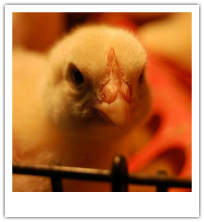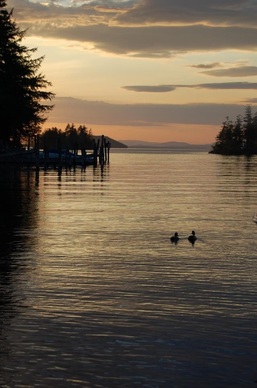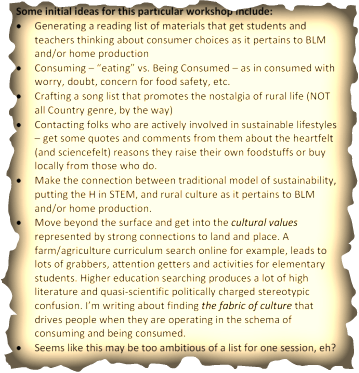...Or, Rain is a Good Thing
In the beginning of April, I am scheduled to present at the New England League of Middle Schools’ Annual Conference. This will be my second year doing so, and the proposed presentation this year is along a quite familiar theme: The Poetry of Ecology and Farming. Last year, I worked around the title, Art and Poetry of Farming, but that seemed too… gimmicky to continue and while there is a valid concern over what some call a fad, a trend, and an alternative lifestyle that will fade in the persistence of time, I have faith that the seeds of cultural revolution are germinating quite well in the back-yard and small-scale farms across the state and the Buy Local Movement. This is a powerful intersection between the role of economics, politics, social consciousness, science and culture. People move toward producing and consuming locally for different reasons and documenting that shift in culture-driven consumerism could be an entry point into studying the not-strictly-political reasons for revolution.
In the beginning of April, I am scheduled to present at the New England League of Middle Schools’ Annual Conference. This will be my second year doing so, and the proposed presentation this year is along a quite familiar theme: The Poetry of Ecology and Farming. Last year, I worked around the title, Art and Poetry of Farming, but that seemed too… gimmicky to continue and while there is a valid concern over what some call a fad, a trend, and an alternative lifestyle that will fade in the persistence of time, I have faith that the seeds of cultural revolution are germinating quite well in the back-yard and small-scale farms across the state and the Buy Local Movement. This is a powerful intersection between the role of economics, politics, social consciousness, science and culture. People move toward producing and consuming locally for different reasons and documenting that shift in culture-driven consumerism could be an entry point into studying the not-strictly-political reasons for revolution.

What Consumes You?
At the classroom level, however, a vision begins here: How do we appreciate what we consume? How do we appreciate what consumes us? Shifting discourse from “eat” to “consume” empowers the metaphor, and broadens the umbrella of thought to encompass each of the categories (economics, politics, science, culture, social consciousness). For the middle school language arts classroom teachers who I will be addressing, the question is most likely going to arise: how does this tie in with our existing curriculum and assessment needs? But then, isn’t that a question each of us walked away with after the first Sustainability Institute? My initial plan before attending this weekend’s Institute was fairly one-dimensional: get teachers and their students writing about rural connections; give them some artifacts to help them access their senses, and provide some old journals/diaries to show “what writing looked like” from days passed. That would still make an excellent “English” presentation… But NOW…
With grounding in the concepts of sustainability, I’ll wrap materials around essential questions that will highlight that intersection between the “humanities” and the“science” of the Buy Local Movement and/or home production of foodstuffs. How this will manifest hasn’t crystallized yet, but it’s a goal :)
With grounding in the concepts of sustainability, I’ll wrap materials around essential questions that will highlight that intersection between the “humanities” and the“science” of the Buy Local Movement and/or home production of foodstuffs. How this will manifest hasn’t crystallized yet, but it’s a goal :)
Why?
At the community college level, I run into a fantastic number of students whose parents (and sometimes they themselves) are enthusiastic consumers or producers of locally grown foodstuffs. Even those who do not partake are aware of its existence; most of either camp are not aware of it as anything other than an economic or radical choice. Most don’t seem to be aware of the power of the individual choices they make every day even when they’re making powerful choices! The story of the people, and their place, is an important part of our identity which is met regularly with a level of dismissiveness. It’s not clear how much of this is a product of our compartmentalized education (English in English class, science in science class, social studies… ) so some folks have developed this sense of “there’s no place for poetry on the farm,” or even, “there’s a place for poetry and a place for farming.” Why not explore the two together? Why not give voice to the stories of a place that impacts us all so deeply and intimately?
Somewhere along the line, it seems high art married literature and hard work married sustenance and the pairs split paths. Those roads may have diverged in a yellow wood, but it’s almost springtime, and it’s about time to craft a connecting path so they can find each other once again. My dream is to help everyday people access their place on the cultural spectrum that includes the Robert Frost, the Will Carleton (“The Farmer’s Poet”), the Donald Hall, the long line of revered nature writers, and do so in accessible ways. Perhaps the lens of sustainability can help people understand the significance, and move forward with it.
Middle school only?
At the community college level, I run into a fantastic number of students whose parents (and sometimes they themselves) are enthusiastic consumers or producers of locally grown foodstuffs. Even those who do not partake are aware of its existence; most of either camp are not aware of it as anything other than an economic or radical choice. Most don’t seem to be aware of the power of the individual choices they make every day even when they’re making powerful choices! The story of the people, and their place, is an important part of our identity which is met regularly with a level of dismissiveness. It’s not clear how much of this is a product of our compartmentalized education (English in English class, science in science class, social studies… ) so some folks have developed this sense of “there’s no place for poetry on the farm,” or even, “there’s a place for poetry and a place for farming.” Why not explore the two together? Why not give voice to the stories of a place that impacts us all so deeply and intimately?
Somewhere along the line, it seems high art married literature and hard work married sustenance and the pairs split paths. Those roads may have diverged in a yellow wood, but it’s almost springtime, and it’s about time to craft a connecting path so they can find each other once again. My dream is to help everyday people access their place on the cultural spectrum that includes the Robert Frost, the Will Carleton (“The Farmer’s Poet”), the Donald Hall, the long line of revered nature writers, and do so in accessible ways. Perhaps the lens of sustainability can help people understand the significance, and move forward with it.
Middle school only?

I think not. The ideas here can blossom into any level from middle school through post-graduate. The differentiation would come in level of readability, age-appropriate discouse and literature selections, and in how much agency to promote. Interdisciplinary activities are limitless across content areas and elective fields, and this speaks to the portable nature of educational plans, which seems to mirror the very nature of sustainability. Next steps would include to build this concept into whatever course I teach next at community college. That's likely a writing course, at this point, but we’ll see :) -Amanda Eason

 RSS Feed
RSS Feed